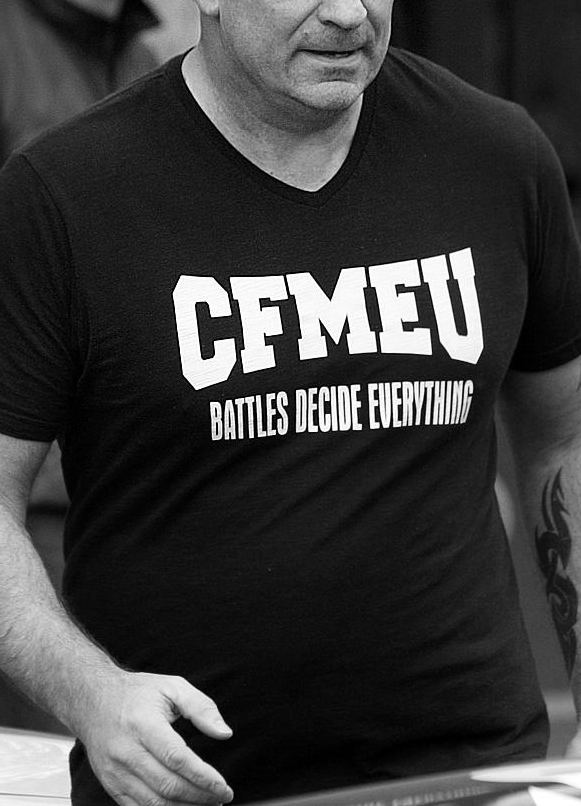Report shows union infiltration
 Bikies still abound at the CFMEU, according to a new review.
Bikies still abound at the CFMEU, according to a new review.
An interim report into the Victorian branch of the Construction, Forestry, Mining and Energy Union (CFMEU) has found that efforts to address criminal activity, particularly involving bikie gangs, have been inadequate.
An investigation by barrister Geoffrey Watson SC has found that despite attempts to remove such elements, members of outlaw motorcycle gangs (OMCGs) continue to hold significant influence within the union, with some bikies retaining their positions.
The report was commissioned in July by CFMEU National Secretary Zach Smith in response to allegations of criminal and corrupt conduct.
The findings are allegedly detailed in a report released this week, painting a picture of widespread “lawlessness” in the construction arm of the union, particularly within its Victorian branch.
According to Watson, the branch has been “caught up in a cycle of lawlessness, where violence was an accepted part of the culture, and threats of violence were a substitute for reasoned negotiations”.
Watson reportedly identified a “stubborn refusal” among union officials to engage with law enforcement.
“It was almost as though the police were regarded as enemies,” he noted, adding that despite instances of union members being violently assaulted, no referrals were made to the police.
One senior official reportedly told Watson that he could recount “1000 cases where workers have been stood over and bashed”, criticising police for targeting unions rather than criminal perpetrators.
Efforts to remove bikie gang members from the union were found to be lacking.
Watson reported that individuals known to be linked to criminal groups remained employed, often in different roles but with “more or less the same authority”.
He expressed doubt about the union’s genuine intent to address the issue, saying; “I remain unconvinced that the Victorian Branch had a real intention to fix this problem.”
The report included seven recommendations, including calls for further investigations into violent or abusive conduct by Victorian branch officials and the development of cooperative relationships with police and regulatory bodies.
“Criminal conduct can only be dealt with in accordance with the law if there is cooperation between the union and law enforcement,” Watson said.
His investigation was reportedly limited by the lack of legal authority to compel witnesses to give evidence or produce documents.
Watson also revealed that threats of violence were made against CFMEU officials who participated in the investigation, which further hindered his ability to gather information.
The report’s findings follow a decision by Attorney-General Mark Dreyfus in August to place the union’s construction arm into administration.
Dreyfus appointed Mark Irving KC as administrator, and Watson was instructed to provide his report to Irving to guide further investigations.
Watson’s recommendations include continued investigation into the links between union delegates and OMCGs, a review of the enterprise bargaining agreement (EBA) process, and scrutiny of how union delegates are appointed. He also suggested further probes into allegations that a union official received approximately $200,000 in free labour from building companies in 2017.








 Print
Print